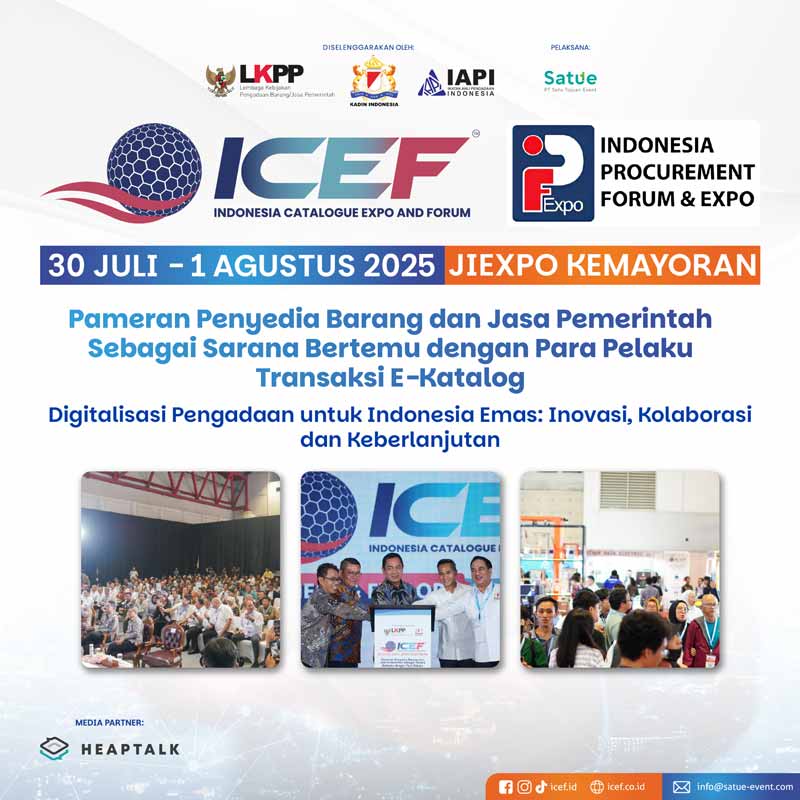Heaptalk, Jakarta — At the 2024 Inadev Summit, held in Hall 8 of ICE BSD on Friday (11/1), Professor Eko Budiardjo, Chairman of the Association of Computer and Informatics Professionals, emphasized the significance of ecosystem collaboration in supporting Indonesia’s rising generation of software developers.
“Software is an invaluable creation by Indonesian talent, essential in today’s digital landscape. However, building it independently is impossible; it requires a collaborative ecosystem,” Budiardjo stated.
He further explained the difference between companies built by single groups and those developed through the ecosystem.
“An ecosystem is not bound by ownership, yet anyone can contribute. This scheme makes it ideal for millennials, enabling them to grow and fostering the rise of new entrepreneurs,” He added.
Furthermore, Budiardjo highlighted that the ecosystem stimulates rapid business growth through networking. He cited successful companies developed within an ecosystem.
“Our ecosystem is intentionally structured to welcome widespread collaboration. It includes platforms like locally developed cloud computing with over 80% domestic content certification, payment gateways, Aplikadia, and innovative applications. One is Mocaas.tv, a video-streaming platform that allows users to create personal channels. For instance, my channel is eko.mocaas.tv. This ecosystem model is a testament to the potential of software ecosystems. Let’s strengthen this ecosystem—more green, more yellow, the stronger we become,” he emphasized.
As is known, Aplikadia.biz.id, a platform under the Association of Indonesian Software and Applications Industry (Aspiluki), supports software and application ecosystems across Indonesia. Its services include a software catalog, a local content (TKDN) calculation simulator, registration and judging systems for software competitions, and procurement consultation, with plans for ongoing expansion aligned with industry advancements.
“There are currently 300 curated software products developed by local talent on Aplikadia,” added the CEO of Neekosa, Ariq Zufar.
Regarding government regulations for software development, Budiarjo recognized that the policies are well-defined, particularly with the Domestic Component Level (TKDN) standard.
“Unfulfilled product to the domestic content requirements unable to represent Indonesia internationally, including at the upcoming APICTA 2024 in Brunei Darussalam this December 2024,” he conveyed.
On the other hand, Binus University Lecturer Ifan Sebastian introduced Daely, an AI and IoT-based device developed by Binus University to detect drowsiness in drivers and issue auditory warnings if fatigue persists. Positioned on the dashboard, the Daely device enhances driver safety and awareness by utilizing ESP32 CAM technology connected to an LCD I2C display and powered via USB. It employs three AI models for better detection, surpassing single-model solutions.
Furthermore, a Bank Mandiri representative, Amir Ibrahim, discussed startup investment criteria. “Our funding approach emphasizes prudence and targets selective sectors aligned with our risk tolerance,” he said, reaffirming Bank Mandiri’s support for Indonesia’s startup ecosystem.
As information, The Inadev Summit 2024, hosted by PT Neekosa and PT Indo Buana Berkah in collaboration with Aspiluki as part of Indocomtech 2024, aims to foster a robust digital ecosystem and drive sustainable growth in Indonesia’s digital industry.














